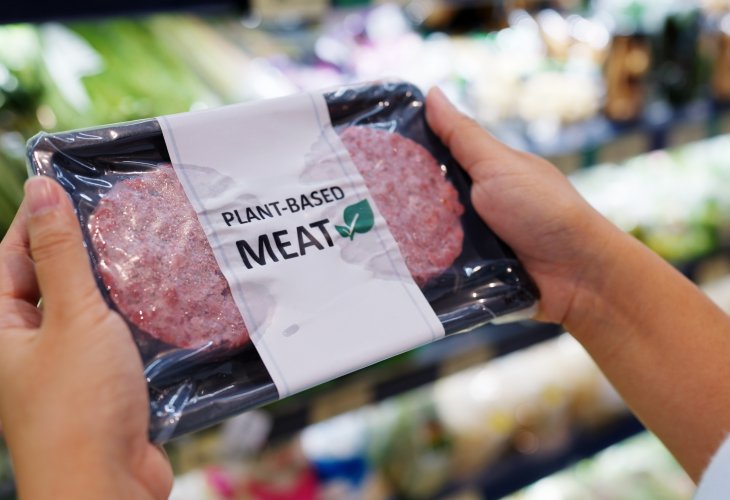Why Separating Cultured Meat and Dairy Might Be Wiser: An Expert Weighs In
Israel's Chief Rabbi recently declared cultured meat as pareve. Yet, dietitian Maya Rozenman suggests keeping it apart from dairy for health advantages.
 Plant-based meat alternatives differ from cultured meat (Photo: Shutterstock)
Plant-based meat alternatives differ from cultured meat (Photo: Shutterstock)Israel's Chief Rabbi, David Lau, recently made a remarkable ruling regarding cultured meat. He declared that cultured meat from a specific company would be kosher pareve if it is labeled as vegetarian and does not mimic the taste and appearance of traditional meat. However, Israeli dietitian Maya Rozenman, known for her column in 'Maariv,' surprised many by suggesting this week that even though cultured meat is pareve, "it is beneficial to follow the traditional commandment and separate cultured meat from dairy foods, also for health reasons."
Rozenman supports her statement with a simple logic, explaining: "It's important to note that the separation between meat and dairy has health benefits, not just traditional halachic reasons. Milk and its products, especially hard cheeses and ricotta, are crucial sources of calcium in our diet. Conversely, meat and its products, whether beef or chicken, are vital sources of iron. Why should they be kept apart? Because they are absorbed at precisely the same place in the intestines, and when calcium and iron are consumed together, half of each's absorption is lost."
And what about calcium and iron supplements taken together? When asked about this, she answered that they too should preferably be taken separately from food.
On a related note, last Monday, the Technion announced the establishment of a multi-disciplinary research center with a $20 million investment, aiming to explore alternative food sources that might one day replace animal-derived foods.
According to senior researchers at the Technion, this is the first and only center of its kind worldwide, intended to attract global researchers to explore the field of alternative proteins. It also aims to train students in relevant academic programs.
Interesting Facts About Cultured Meat You Didn’t Know:
- Cultured meat is also known as synthetic meat because it's produced in a lab.
- Manufacturers use cell cultures rather than the bodies of animals themselves.
- The first producer to introduce cultured meat to the market was a restaurateur in Singapore, quickly followed by Israeli initiatives.
- Due to high production costs, cultured meat is currently far more expensive than regular meat.
- Experts estimate that in the future, the price of cultured meat will drop to about half of its current cost.
- Cultured meat is a continuously researched topic in the biotech research sector, with the science behind it known as 'tissue engineering.'
- Despite common confusion, cultured meat is not the same as plant-based meat substitutes, which are derived from soy or wheat. Cultured meat is produced from minimal animal stem cells.
The Halachic Perspective:
What about cultured meat with taste and aroma similar to real meat? In such cases, Rabbi Lau suggests "to be stringent and label it as kosher, but not as a pareve product."

